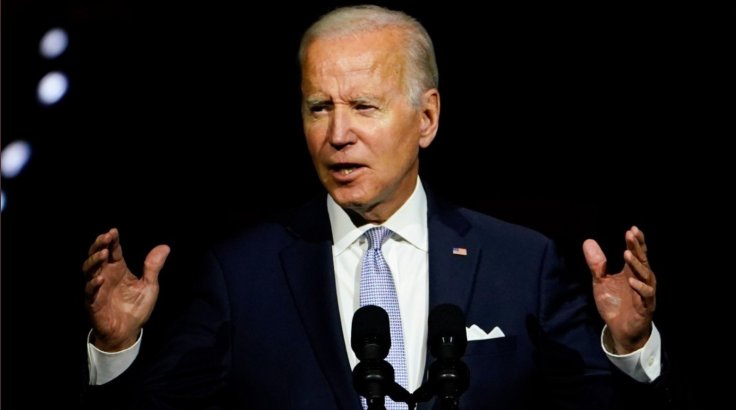Wall Street rebounded on Monday, paring some of the losses from last week as investors evaluated the chances of Republican nominee Donald Trump winning a second term in the upcoming November election following President Joe Biden's withdrawal from the 2024 Presidential race.
Biden announced on Sunday that he was dropping out and endorsed Vice President Kamala Harris's candidacy. According to the online betting site PredictIT, the odds of a Donald Trump victory dropped by 4 cents to 60 cents, while the chances of a Harris win increased by 12 cents to 39 cents. However, it needs to be seen how the Walls Street reacts over the next few trading sessions.
Stocks Rebound after Biden's Withdrawal

Over the past 10 days, uncertainty has affected the economy and the markets. With President Biden's surprising announcement on Sunday that he is withdrawing from the presidential race, this uncertainty is likely to grow.
Although it is difficult to measure the impact, Biden endorsed Harris, who quickly began rallying support from Democrats in Congress and beyond on Sunday. Much will depend on the Democratic Party and its leaders, who will meet in Chicago from August 19-22 to choose their nominee. For now, Harris seems to be the frontrunner for the nomination.

Investors are now evaluating a shifted political landscape after Biden's announcement. This political upheaval could introduce more volatility into an already struggling stock market, diverting attention from this week's influx of earnings reports and crucial inflation data release.
"If Harris is successful in fundraising and attracting energy and unity in the party, it increases the odds of a Trump loss, as candidate Trump has a devout following but an unquestionably low ceiling," said David Bahnsen, founder and chief investment officer of the Bahnsen Group.
"Right now, the markets have already priced-in a slight Republican majority in the Senate, which is very likely, and that will calm any negative market impact from a potential Harris win. The election is not in the top three priorities in terms of market considerations, as earnings, Federal Reserve, and geopolitics are a bigger driver of markets."
Markets Could Turn Volatile
Some investors initially believed that stocks would not respond positively to the news, at least in the short term. Their reasoning is fairly simple: markets tend to react poorly to the perception that uncertainty, whether political or economic, is rising.

"Biden stepping down is a whole new level of political uncertainty. This may be the catalyst for market volatility that is overdue," said Gina Bolvin, president of Bolvin Wealth Management Group, in comments shared with MarketWatch via email Sunday afternoon.
Others suggested that investors would need time to assess the situation, as Biden's withdrawal introduces numerous uncertainties.
Wall Street will be closely observing the Democrats as they scramble to select new presidential and vice-presidential nominees and gauge voter reactions to the new ticket. On Sunday, Biden also announced his endorsement of Vice President Kamala Harris.
Ed Mills, Washington Policy Analyst at Raymond James, told MarketWatch on Sunday that certain aspects of the "Trump trade" could reverse this week.

The Trump trade is thought to have benefited small-cap stocks, financials, and some healthcare and energy sectors.
"I don't think there is going to be a significant market reaction because there is going to be a bit of a wait-and-see period," Mills said. "But we could see the momentum behind the 'Trump trade' stall out until we get a true sense of what is next for Democrats."
History offers little guidance on how the markets might behave in the future. After Lyndon Johnson withdrew from the 1968 race, the broad S&P 500 index rose 2.5% and ended the year higher. However, LBJ's announcement was less anticipated than Biden's withdrawal.
When Richard Nixon resigned in August 1974, the economy was struggling, and the country was in the middle of a bear market. The S&P fell 1% following the news of his resignation and continued to decline, dropping 15% over the next month. However, it rebounded strongly in 1975, increasing by nearly 32%.









